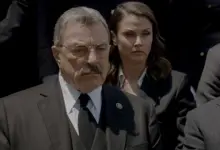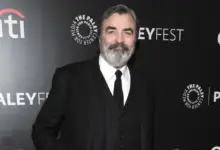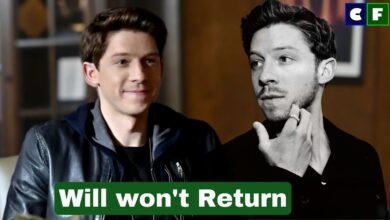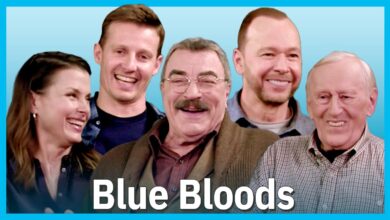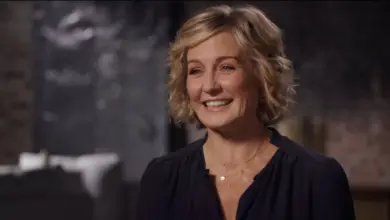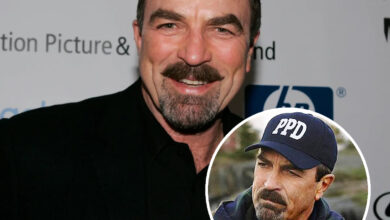‘Blue Bloods’ Star Tom Selleck on Being an ‘Accidental’ Actor, His ‘Appetite for Failure’ and Retirement
‘Blue Bloods’ Star Tom Selleck on Being an ‘Accidental’ Actor, His ‘Appetite for Failure’ and Retirement
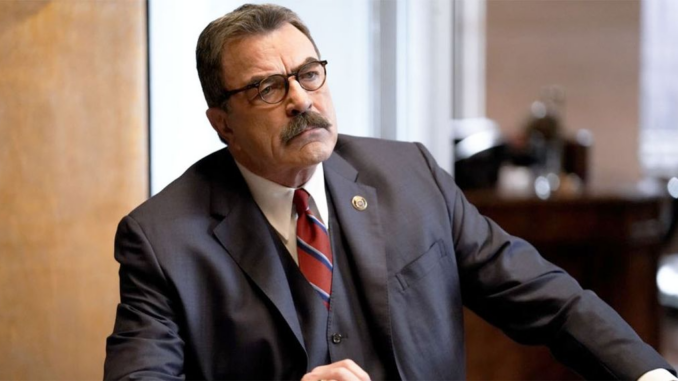
‘Blue Bloods’ Star Tom Selleck on Being an ‘Accidental’ Actor, His ‘Appetite for Failure’ and Retirement
In Tom Selleck’s intimate new memoir, ‘You Never Know,’ the star shares his journey, including the misfires and mistakes, to his hard-earned success.
With hit shows like Blue Bloods and Magnum, P.I. to his credit and box office successes like Three Men and a Baby and Quigley Down Under, Tom Selleck has had an impressive career.
But in his new memoir, You Never Know, he attributes that career to an accident—a happy one—that was the result of his having played basketball at USC, where he was a business major, which led to him appearing on The Dating Game.
“I don’t think it really would have happened if Dick Zanuck [the president of 20th Century Fox in the ‘60s] wasn’t a fan of UCLA basketball and I played at SC,” Selleck tells Parade in this one-on-one interview. “Which, I think, he found interesting and was why he said yes to me signing a contract [for the Fox New Talent development program]. But once I got there and was exposed to it, I think after getting over the nerves for a couple of months, I realized I liked it. Then they fired me.”
Selleck wasn’t fired for lack of talent—rather, the entire program was discontinued—but the lessons he learned there served as the foundation to his career. He also made lifelong friends like Sam Elliott and Linda Dano, and met Esme Chandlee, his publicist who helped boost his profile even before he could afford to pay her.
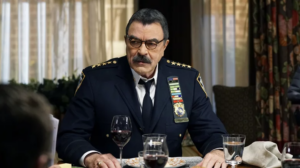
“I had terrible work habits at school, but I had terrific work habits in sports,” Selleck said of his start. “You’re really dealing in acting with, as I called it, getting an appetite for failure, and I already had an appetite for that because I played sports. So, I looked at it differently. But it was an accident.”
With The Dating Game under his belt, failure and all, Selleck decided to throw himself into auditioning. But he wasn’t an overnight success. It took him 13 years to land the role of Thomas Magnum in Magnum, P.I. As the story goes, the timing of that big break was both fortuitous and frustrating. He was offered a second role right after he had signed the contracts with CBS: that of Indiana Jones in Raiders of the Lost Ark.
“I love the Raider story. I’m proud that I lived through it,” admits Selleck, who is still very philosophical about the result.
“Magnum was a big struggle itself, just getting the piece of material that it turned out to be,” he says. “That was a long road. When I finally agreed to do Magnum and Don Bellisario had written this great script, it was the best thing that ever happened to me. Then something else happened that was really good.”
Selleck went to Bob Daly, who was the head of CBS, to see if he could get a waiver to do Indiana Jones in addition to Magnum.
“Bob Daly is a good guy,” Selleck says. “He had every right to [say no]. The business was very structured in those days. He said, ‘I don’t want a movie star in my series because he’ll want to leave.’ A lot of actors had done that. I never was about to even consider that.”
He could have done both and possibly have had a different career because it turned out that there was a strike and Magnum was postponed. But Selleck is satisfied with the way things turned out. His path led him to the life he now has, including meeting his wife, Jillie Mack, when he was filming Lassiter.
“All those things happened. I owe a lot to the business and the success I think I’ve earned, which is key,” he tells Parade. “If things had gone a little different, if I had fooled somebody and gotten a big part my first year at Fox, I think I would have been in and out of there pretty quick and that would have been about it.”
During our chat, Selleck also talked about the words of wisdom he lives by, his love for his 63-acre California ranch and more.
You were initially reluctant to write this book. Why did you change your mind?
Annett Wolf, my current publicist, who’s also a dear friend, kept bugging me. I figured I had something to share; I wasn’t going to do a tell-all or a political book or a get-even book. But I do have a lot of work that people aren’t aware of, and I thought that there were lessons in that. Mostly, I don’t think you should start a book unless you recognize what I do when I do a screenplay, which is first and foremost you have an obligation to entertain. If you entertain people, maybe you can also move them and say something that they might listen to. But those moments must be earned. That’s my philosophy.
Speaking of philosophy, you also give us your words of wisdom: Show up on time, put a smile on your face, do your job. You have to choose to be offended. Were those values learned from playing sports or were those things that your parents taught you?
Some, like, “Risk is a price you pay for opportunity”—I’m not even sure my dad said it, but he just lived it with the way he went about his whole life. But other ones came to me in the book. Particularly with the times we’re living in, you have to choose to be offended. I think that’s something that a lot of people should contemplate. It seems like we’re all looking for reasons to get mad at somebody else or to be offended. It’s pretty easy to take a deep breath and think a second time before you push send.
So yeah, it was a matter of both, but where did I learn them? Probably from sports, probably from my parents. Occasionally, people put words to [an idea] I couldn’t forget, like George Will’s book Men at Work, about baseball. “Luck is unpredictable, but talent tends to take advantage of it; therefore, the talented tend to have more of it.”
So I shared that stuff because it did relate to the work, and it did relate to my philosophy of the work.
The one that was surprising was where you tell yourself, you are enough, even after your success. From the outside looking in, it looks as if you would have had more confidence.
Look, I was the shy kid in speech class. I never wanted to be an actor or anything else. Every actor works differently, but I found that the more confident I was, the more I risked and the more I grew as an actor. It was a slow process. Then you’re always dealing [with the fact that] you’re probably going to lose about 50 percent of whatever talent you have when you go read for a role just to nerves. So, it was a way of dealing with the nerves and the anxiety of the auditions and everything else. I literally did say it out loud sometimes
I said it in the book, when I was 25, I looked 35 and sounded 15. Everything hadn’t quite formed. I knew when I walked in—as my first acting coach, Bert Connolly, said, “Look, in some way you’re going to have to deliver the guy you look like.” And I said, “Well, I don’t like those guys who like the way they look. I have more of an appetite for quirky people with flaws.” And he said, “But still, that guy who comes in the room, you’ve got to find them both.”
